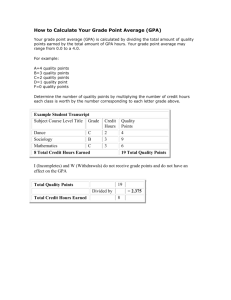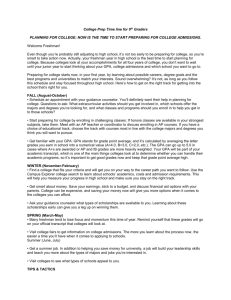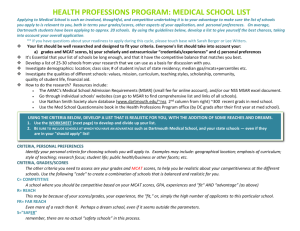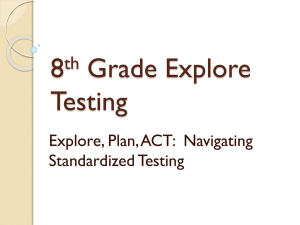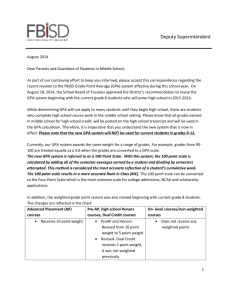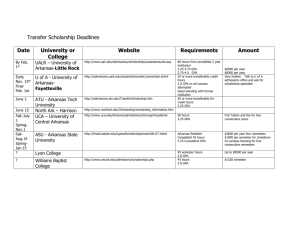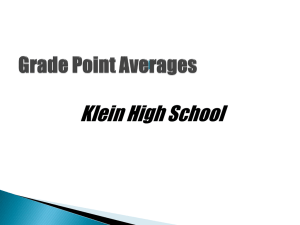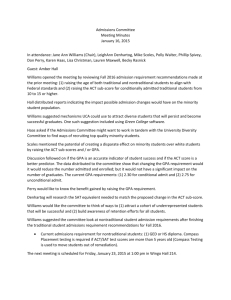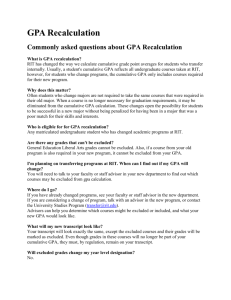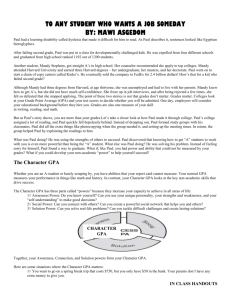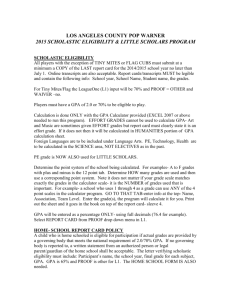High School Grades: The Main Predictor of College Success
advertisement
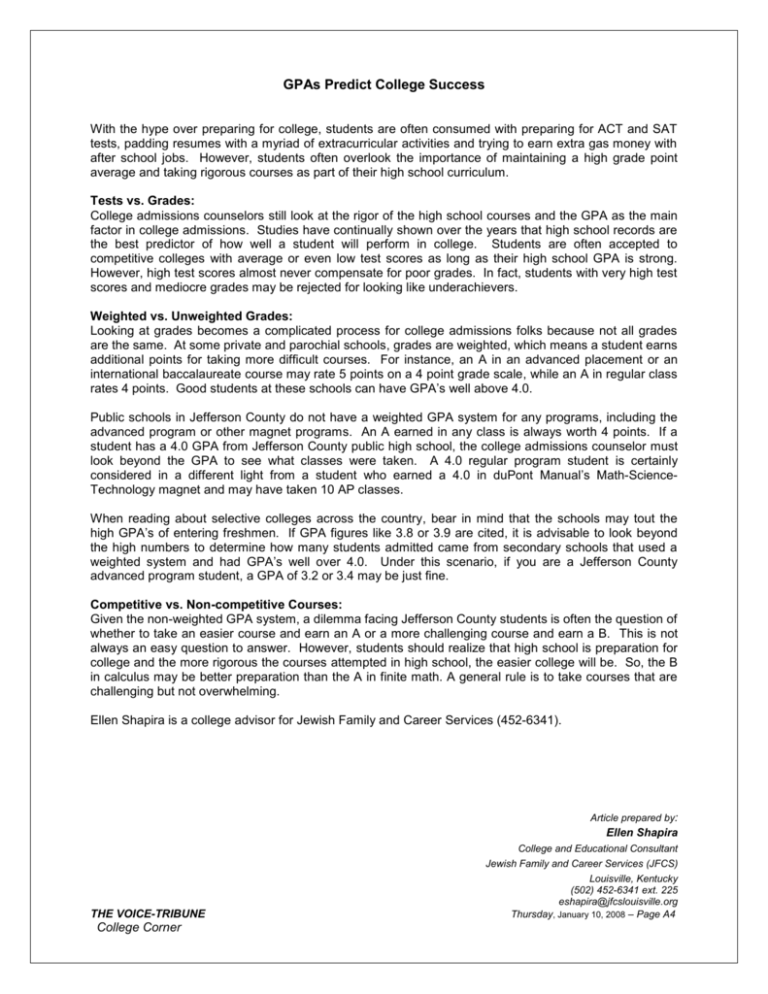
GPAs Predict College Success With the hype over preparing for college, students are often consumed with preparing for ACT and SAT tests, padding resumes with a myriad of extracurricular activities and trying to earn extra gas money with after school jobs. However, students often overlook the importance of maintaining a high grade point average and taking rigorous courses as part of their high school curriculum. Tests vs. Grades: College admissions counselors still look at the rigor of the high school courses and the GPA as the main factor in college admissions. Studies have continually shown over the years that high school records are the best predictor of how well a student will perform in college. Students are often accepted to competitive colleges with average or even low test scores as long as their high school GPA is strong. However, high test scores almost never compensate for poor grades. In fact, students with very high test scores and mediocre grades may be rejected for looking like underachievers. Weighted vs. Unweighted Grades: Looking at grades becomes a complicated process for college admissions folks because not all grades are the same. At some private and parochial schools, grades are weighted, which means a student earns additional points for taking more difficult courses. For instance, an A in an advanced placement or an international baccalaureate course may rate 5 points on a 4 point grade scale, while an A in regular class rates 4 points. Good students at these schools can have GPA’s well above 4.0. Public schools in Jefferson County do not have a weighted GPA system for any programs, including the advanced program or other magnet programs. An A earned in any class is always worth 4 points. If a student has a 4.0 GPA from Jefferson County public high school, the college admissions counselor must look beyond the GPA to see what classes were taken. A 4.0 regular program student is certainly considered in a different light from a student who earned a 4.0 in duPont Manual’s Math-ScienceTechnology magnet and may have taken 10 AP classes. When reading about selective colleges across the country, bear in mind that the schools may tout the high GPA’s of entering freshmen. If GPA figures like 3.8 or 3.9 are cited, it is advisable to look beyond the high numbers to determine how many students admitted came from secondary schools that used a weighted system and had GPA’s well over 4.0. Under this scenario, if you are a Jefferson County advanced program student, a GPA of 3.2 or 3.4 may be just fine. Competitive vs. Non-competitive Courses: Given the non-weighted GPA system, a dilemma facing Jefferson County students is often the question of whether to take an easier course and earn an A or a more challenging course and earn a B. This is not always an easy question to answer. However, students should realize that high school is preparation for college and the more rigorous the courses attempted in high school, the easier college will be. So, the B in calculus may be better preparation than the A in finite math. A general rule is to take courses that are challenging but not overwhelming. Ellen Shapira is a college advisor for Jewish Family and Career Services (452-6341). Article prepared by: Ellen Shapira THE VOICE-TRIBUNE College Corner College and Educational Consultant Jewish Family and Career Services (JFCS) Louisville, Kentucky (502) 452-6341 ext. 225 eshapira@jfcslouisville.org Thursday, January 10, 2008 – Page A4
